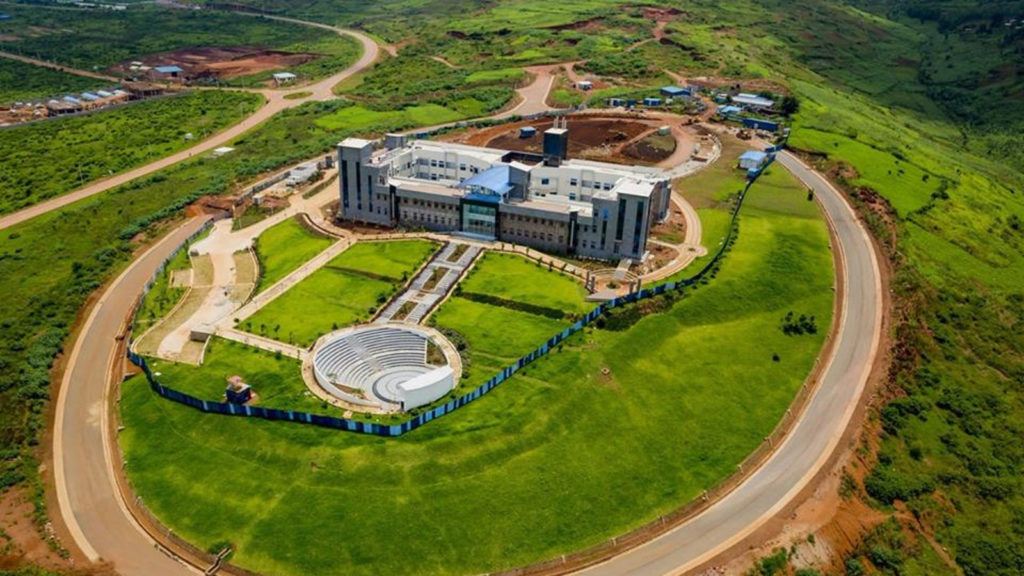Chinese consumer electronics company Honor is set to unveil its latest lineup of smart devices for the South African market. How about we forecast…
These will be Africa’s biggest tech innovation city projects when completed

Can a tech innovation city or digital innovation precinct stimulate and encourage innovation? A number of African countries appear to think so and have invested tons of money in these multi-million dollar projects.
Last month Rwandan daily The New Times reported that pan-African infrastructure investment firm Africa50 will invest $400-million in Kigali Innovation City, which forms part of the government’s Vision 2020 and National Strategy for Transformation 2017-2024.
The $2-billion project will be located in Rwanda’s capital Kigali and the tech hub is set to accommodate tech firms, universities, biotech companies as well as both commercial and retail properties.
The development — which sits on 70 hectares of land — already houses a Carnegie Mellon University campus, while SA business publication How We Made It In Africa in October reported that the African Institute for Mathematical Sciences (AIMS) is also expected to be based at the tech innovation city.
Examples of African innovation cities that are either currently under construction or have been announced include Rwanda’s Kigali Innovation City, Kenya’s Konza Techno City and Benin’s Sèmè City
In a previous article also published last month, The New Times reported that the Kigali Innovation City will on completion create over 50 000 jobs, $150-million in ICT exports and attract over $300-million in foreign direct investments by the time it’s completed.
Kigali Innovation City is the latest attempt by an African country to develop an innovation city or innovation precinct.
Tech cities already operating or under way
Some that are already in operation include the 55-hectare Techno Park in Stellenbosch, South Africa which was completed in 1987 as well as the smaller Tshimologong Digital Innovation Precinct in the Braamfontein district of Johannesburg which opened in 2016. The hub, which sits on half-a-city block currently houses more than 40 startups.
Still under construction is Kenya’s $14.5-billion 5000 acre Konza Techno City complex. In September, Konza Technopolis Development Authority (KoTDA) CEO Eng John Tanui told Ventureburn that the nine-storey headquarters of the Konza Techno City will be completed by the end of this year. That building alone is expected to provide office space for anchor tenants, investors and the innovation community.
Earlier in 2016, Tanui said Konza Techno City is set to house a specialised regional lab for testing and validation of viable products from incubation and innovation hubs.
At the time, Tanui explained that the solutions that will come from the Konza ecosystem will help address global challenges and create a foundation for Kenyan startups and small businesses to ” grow into multinationals’.
Last year in June, Benin’s President Patrice Talon announced the allocation of 207-billion West African Franc (roughly R4.7-billion at the time) towards the construction of Sèmè City.
Sèmè City, which will be situated 10 km from the Nigerian border in Sèmè Podji, will be a hub for education, research and business incubation. The “Revealing Benin” flagship project — which is expected to be completed by 2013 — will sit on 350 hectares of state-owned land, while the innovation district’s incubator is reported to have the capacity to support up to 250 startups once it is completed.
In September, Jeune Afrique reported that French computer science school Epitech will from February next year conduct lessons at Sèmè City, with an initial intake of between 30 to 35 students.
Others, however have turned into white elephants and failed to get off the ground. A prime example of this is Ghana’s Hope City project, construction of which was meant to start in months after it was announced in 2013. However, three years later in 2016 Ghanaian news site Pulse reported that construction had yet to begin.
When then President John Mahama launched the project in 2013, CNN reported that the $10-billion high-tech hub would aim to foster technological growth and attract major players in the global tech industry to Ghana. The development which would have sat on area about 1.5-million square meters big would have housed Africa’s tallest building.
Tech innovation cities or digital innovation precinct have taken hold in Africa. But it remains it to be seen what kind of difference these developments will have for tech startups in Africa.
Read more: Konza City headquarters expected to be completed by December says agency head
Read more: Benin’s Sèmè City to become West Africa’s newest business hub
Featured image: Part of Kigali Innovation City (Povo News via Facebook)

